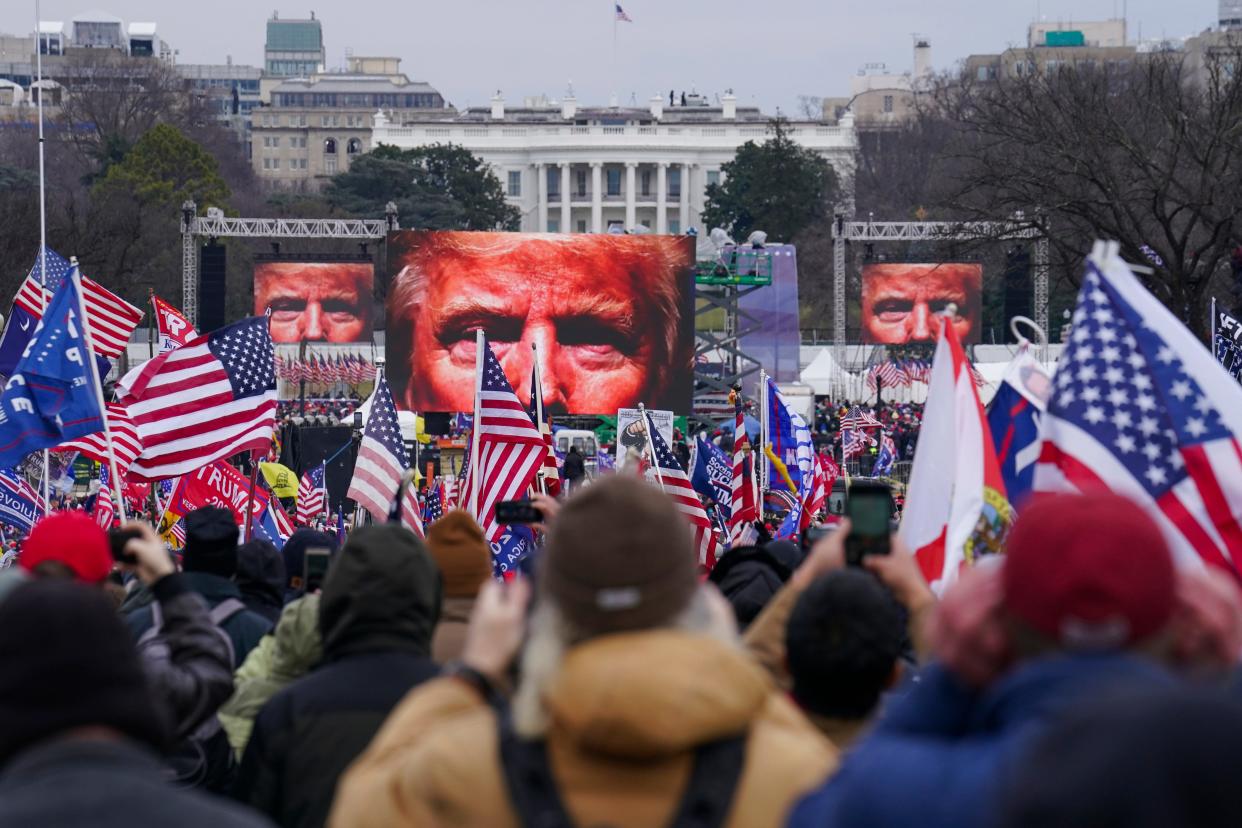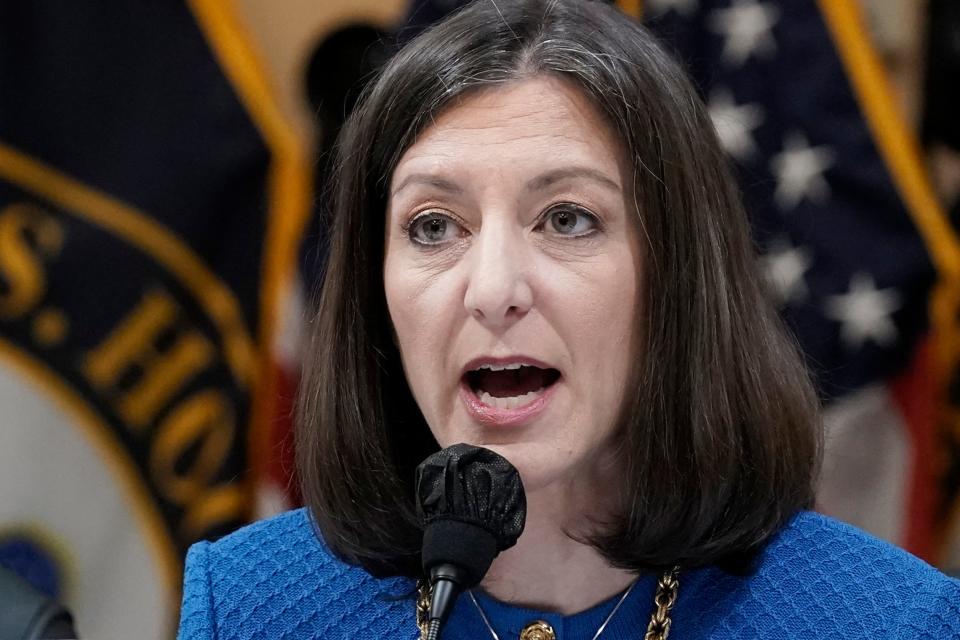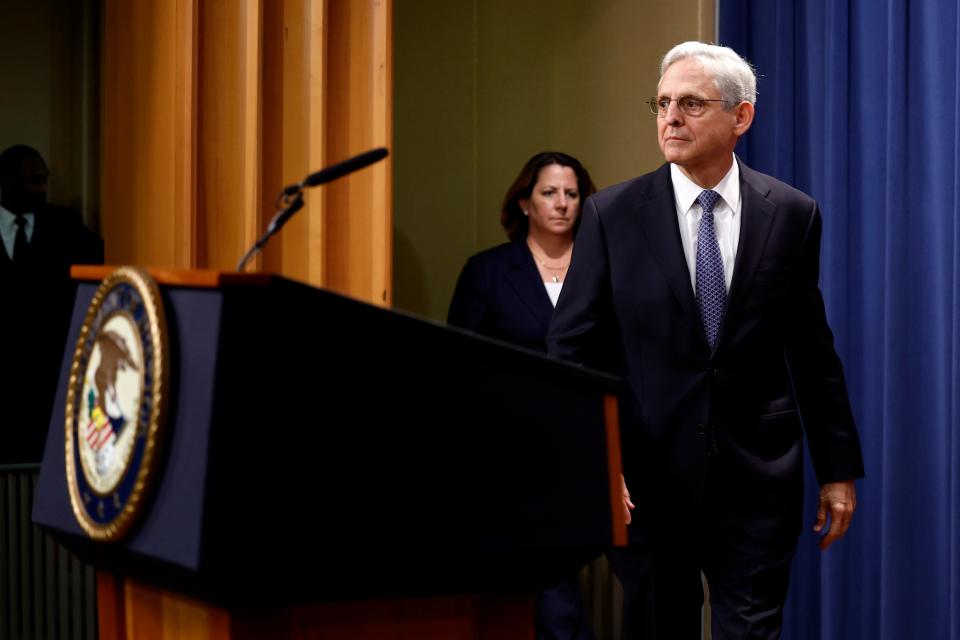Inciting insurrection: a striking condemnation of Trump - but a high bar for prosecutors

- Oops!Something went wrong.Please try again later.
Of all the criminal offenses referred to the Justice Department for prosecution Monday by the House committee investigating the Capitol attack, Donald Trump’s alleged incitement of the deadly insurrection may stand as the most striking condemnation.
It also could be difficult to prove – should Justice pursue the case – as legal analysts said prosecutors would face the challenge of determining where Trump's free speech rights stop while seizing on the former president's intent to assist in a rebellion against the government.
More: The Jan. 6 panel's 18-month probe led to criminal referrals against Trump. Read the summary
More: Jan. 6 hearing recap: House committee recommends DOJ prosecute Trump over Capitol attack
"It's not an impossible bar, but it is a difficult bar to clear," said David Weinstein, a former federal prosecutor in Miami. "The problem here, as always, is that you have to prove intent."
The committee believes powerful proof of Trump's ultimate objective can be found in witness accounts of a clash with Secret Service agents who refused the then-president's demands to take him to the Capitol, following his Jan. 6 address on the Ellipse where he urged supporters to "fight like hell" for him.

"The committee’s principal concern was that the President actually intended to participate personally in the January 6th efforts at the Capitol, leading the attempt to overturn the election either from inside the House Chamber, from a stage outside the Capitol, or otherwise," according the executive summary of the panel's final report.
"There is no question from all the evidence assembled that President Trump did have that intent."

Rep. Elaine Luria, D-Va., a Jan. 6 committee member, said Trump's aim also could be found in his unusual silence.
During Monday's meeting, Luria referred to the "187 minutes" following the then-president's provocative address on the Ellipse when he took no action during the next three hours to stop the assault, despite pleas from aides and family members.
More: A breakdown of the 187 minutes Trump was out of view on Jan. 6 as aides urged him to act
Luria suggested that Trump's inaction during that time only aided the rioters, who he later praised.
"President Trump lit the flame, poured gasoline on the fire … and watched the fire burn," Luria said Monday.
The Justice Department declined comment on the criminal referrals Tuesday.
More: AG Merrick Garland appoints special counsel to oversee Trump criminal investigations

Last month, Attorney General Merrick Garland appointed special counsel Jack Smith to oversee two ongoing investigations involving Trump, to include interference in the transfer of power and the mishandling of government documents later recovered at the former president's Florida estate.
It is unclear whether aspects of Justice's pending Trump-related investigations include possible incitement.
But Carl Tobias, a University of Richmond law professor, said Justice could draw confidence in pursuing an incitement case against Trump based on last month's convictions of Oath Keeper founder Stewart Rhodes. He and a top lieutenant were found guilty of rare seditious conspiracy charges related to the violent plot to halt the certification of President Joe Biden's election.
"There might be some heartburn at the Justice Department to take up the (incitement) case, but it is plausible," Tobias said.
This article originally appeared on USA TODAY: Inciting insurrection striking condemnation of Trump

